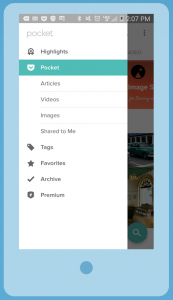— March 29, 2018
We recently had the opportunity to attend the IFA (International Franchise Association) national conference in sunny Phoenix, AZ. If you’re a franchisee or franchisor, this is a can’t miss event that covers the latest news and best practices in the world of franchising. At the conference, we learned a great deal about the challenges franchisees and franchisors face everyday in terms of marketing. One of the biggest obstacles we heard mentioned frequently was the ability to prove marketing ROI. There are several ways franchisees and franchisors can measure and improve their marketing success, but for franchises that want inbound phone calls, one key way that shouldn’t be ignored is call tracking.
Franchising and call tracking should go hand in hand since it is one of the best ways to understand which marketing efforts are driving the most business to each location. Thanks to the rise in smartphone adoption and mobile search, franchise locations across the US are getting billions of calls each month. And those calls convert to revenue 10 times more than web leads. If you can’t track phone leads back to their source to see what’s working, your marketing and sales will suffer.
That’s where call tracking comes in. Call tracking — also know as call analytics or call attribution — is a marketing analytics technology that enables businesses to see exactly how their digital advertising, offline marketing, and website drive inbound calls, what happens on those calls, and if they convert to appointments or customers. Armed with this data and understanding of the call channel, you can leverage insights from conversations to measure and optimize your marketing strategies, as well as monitor and improve the way franchisees handle inbound calls.
Below are three call tracking strategies franchisors and franchisees can use to measure and drive more calls and customers and improve the ROI of your national marketing funds.
1. Understand How Every Marketing Channel Drives Calls
Considering approximately one out of every 12 businesses in the US is a franchise business, it is clear that franchise businesses play a significant role in the US economy. Given the large number of locations most franchises have, it is imperative to be able to track calls to each one. With call tracking technology, franchises can gain insight into which marketing source or campaign is driving the most calls and customers. Using powerful user- and keyword-level tracking for calls, you can attribute calls from individual search, social, display, email, direct mail, TV, or radio marketing campaigns. Having this data allows franchisors to prove and improve how online and offline marketing drives quality phone leads to each franchisee. You can also use it to monitor how each franchisee handles the calls your marketing generates.
2. Create Franchisee-Based Reporting to Prove Marketing ROI
Having numerous regional or even national locations, it’s important for franchisors and franchisees to see how many inbound calls each location is receiving. Furthermore, it’s valuable to understand how these calls are converting to sales leads and how this varies from location to location. With a customized reporting dashboard, you can view real-time call data alongside all other marketing data and sort based on franchisee location, franchise group, geography, and more. Streamlined reporting allows marketers to easily visualize metrics that can be used to make better marketing decisions moving forward.
![]()
3. Leverage AI to Efficiently Score Calls and Optimize Marketing
Using call tracking and analytics data we covered in the first strategy, you can gain crucial marketing insights into what is driving the most calls, but understanding what happens on those calls and if they are quality leads is important to proving and improve ROI. Many franchises receive thousands (or even hundreds of thousands) of inbound calls each week across their locations. Insights from these voice interactions can be used to improve marketing and sales performance. For example, if you know that key purchasing indicators — such as “appointment discussed,” “quote made,” or “repeat caller” were identified on a call, you can see the marketing tactics that drove these calls and optimize accordingly. Manually analyzing inbound calls for this data would require listening to hours of call recordings, and that is simply not realistic. However, there are solutions that use AI to analyze calls to score caller intent, lead quality, and sales performance for insights to improve marketing and sales. The below example shows how one national franchise, Comfort Keepers, uses AI to examine calls to their franchise locations and prove marketing ROI to franchisees.
![]()
With call tracking technology that includes conversation analytics and AI, franchises gain insight into exactly how their marketing is driving calls and customers. Franchisors can show franchisees how many quality calls they’ve driven to them, and they can better optimize their national marketing to drive more good calls. If you’re a marketer at a national franchise looking to better prioritize your marketing spend and deliver better leads to each franchisee, adopting a call tracking and analytics solution is the answer.
Business & Finance Articles on Business 2 Community
(68)




